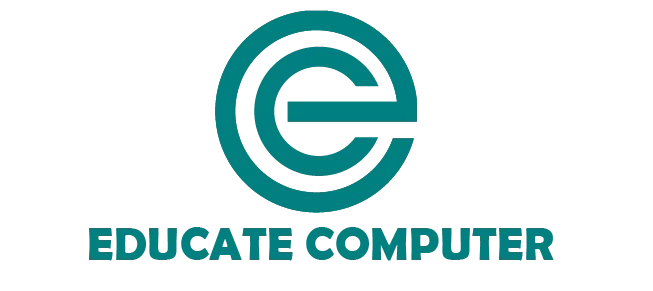Imagine sitting in math class, looking at numbers and formulas, and thinking, “Only really smart people can code.” I used to think that too, but then I tried coding myself. As a recent college graduate, I can tell you it’s not as hard as it seems.
When I started coding in high school, I didn’t know where it would lead me, but learning it was worth it. Coding isn’t just for people who want to work with computers. It helps you think better, solve problems, and be creative.
Why Start Coding in High School?
Starting coding in high school gives you a huge advantage. It’s like getting a head start on understanding a skill that’s only becoming more essential. Here’s why it matters:
- Boosts Your College Application: Colleges look for skills that make you stand out, and coding is a big one. It shows initiative, problem-solving abilities, and creativity. Imagine showing your app or website in your applications. It speaks volumes about your skills!
- Career Exploration: If you’re unsure of your career path, coding offers early insight into tech, business, and science fields. You’ll know if you like it and if you want to learn more.
- Logical Thinking and Problem-Solving Skills: Coding is like solving a puzzle. You break down a problem into smaller steps and create solutions. This logical approach is helpful in all areas of life, not just tech.
- Creative Expression: Coding isn’t all about numbers and lines of code. It’s a form of creativity. You can bring ideas to life by making a game, designing a website, or developing an app.
- Wow Factor: Imagine showing your friends a game or app you built yourself. It’s a great conversation starter and can be a lot of fun to show off your skills.
Breaking Down the Myths
Some common myths hold people back from trying coding, but most of these are far from the truth. Let’s clear some up:
- “You Need to Be a Math Genius”: Not true! While math helps, coding is much more about logical thinking and problem-solving. You don’t need to know calculus to create a website or even a game.
- “It’s Too Late to Start”: Coding can be picked up at any age, and high school is a great time to start. The younger you start, the more you can build on your skills. Don’t let age hold you back.
- “Coding Is Boring”: Coding can be incredibly engaging, especially when you’re working on projects that interest you, like making a website, building a small app, or programming a simple game.
- “You Need Expensive Equipment”: Many coding tools are free and work just fine on a basic computer. With free resources online, you can start coding without spending any money.
How to Start Coding?
If you’re wondering where to start. Here are some accessible, beginner-friendly resources and tips to make the journey smoother:
- Free Online Resources for Beginners:
- Codecademy: A fantastic platform for interaction. Step-by-step lessons on languages like Python, JavaScript, and HTML/CSS.
- freeCodeCamp: Great for beginners looking to practice with real projects. It has a massive community, too, so you can find support.
- Scratch: If you’re brand new to coding, Scratch is a block-based coding language where you can make animations, games, and more. It’s visually engaging and a great way to learn the basics of coding logic.
- Choosing Your First Programming Language:
- Python: Easy to read, widely used, and powerful. Great for beginners!
- JavaScript: Ideal if you’re interested in creating websites and interactive web elements.
- Scratch: Perfect for younger coders and absolute beginners. It lets you focus on coding logic without worrying about syntax.
Pro Tip: It’s easy to get overwhelmed by all the choices. Pick one language that interests you and stick with it until you feel comfortable.
Making Time for Coding
Finding time for coding with a busy school schedule can be challenging, but here are ways to fit it in:
- Set Small Goals: Start with just 20-30 minutes a day. Consistency matters more than cramming hours of coding into one day.
- Weekend Projects: Use the weekend to dive into slightly bigger projects that you don’t have time for during the week. It’s a fun way to spend a Saturday afternoon.
- Summer Learning: Summer vacation is perfect for taking an online coding course or completing a project without the distraction of homework.
Try This!: Set a small goal, like creating a simple “Hello, World!” program. It’s a quick win that’ll boost your confidence and get you ready for bigger challenges.
Learning Pathways
There’s no single “right” way to learn coding. Here are two popular paths, each with its benefits:
1. Self-Study Route:
- Online Tutorials: Sites like YouTube, Khan Academy, and W3Schools offer countless free tutorials for all skill levels.
- Coding Books for Teens: Books like Python for Kids or Coding Games in Scratch can be both fun and informative.
- Web-Based Platforms: Platforms like edX, Coursera, and Udemy often have introductory coding courses that allow you to learn at your own pace.
2. Structured Learning:
- School Clubs/Classes: Some high schools offer coding clubs or even classes. If yours doesn’t, you could start one!
- Local Coding Bootcamps: Many cities have coding bootcamps for high schoolers, and some may even offer scholarships.
- Online Courses: Websites like Coursera and edX offer beginner-friendly courses that provide structured learning and sometimes even certifications.
Building Your First Projects
Once you get comfortable with coding, building projects is where the fun begins. Here are some beginner project ideas:
- Simple Calculator: A project that’s surprisingly satisfying and shows you how coding can be applied to solve practical problems.
- To-Do List App: This teaches you about data storage, user input, and a bit of front-end development if you’re using HTML and JavaScript.
- Basic Game: You could try something like a guessing game or Tic-Tac-Toe, which lets you see your code come to life in a fun way.
- Finding Project Inspiration: Websites like GitHub have repositories where you can view and try beginner projects. Also, look for coding challenge websites like LeetCode or HackerRank for ideas.
Try This!: Set a goal to complete one small project each month. Over time, you’ll build up a solid portfolio that shows off your skills.
Next Steps
After you’ve built a few projects, you might want to challenge yourself even more. Here’s how to keep moving forward:
- Preparing for College in Computer Science: If you’re thinking of majoring in Computer Science, take classes like AP Computer Science or other advanced math and science courses.
- Internships: Look for high school internship opportunities, especially during the summer. Internships provide real-world experience and look great on resumes.
- Building a Coding Portfolio: Platforms like GitHub allow you to showcase your projects to colleges or future employers. Create a website to organize and show off your projects in a professional format.
Try This!: Start a simple blog or online portfolio where you document your coding journey. You can add updates, new projects, and even challenges you faced along the way.

